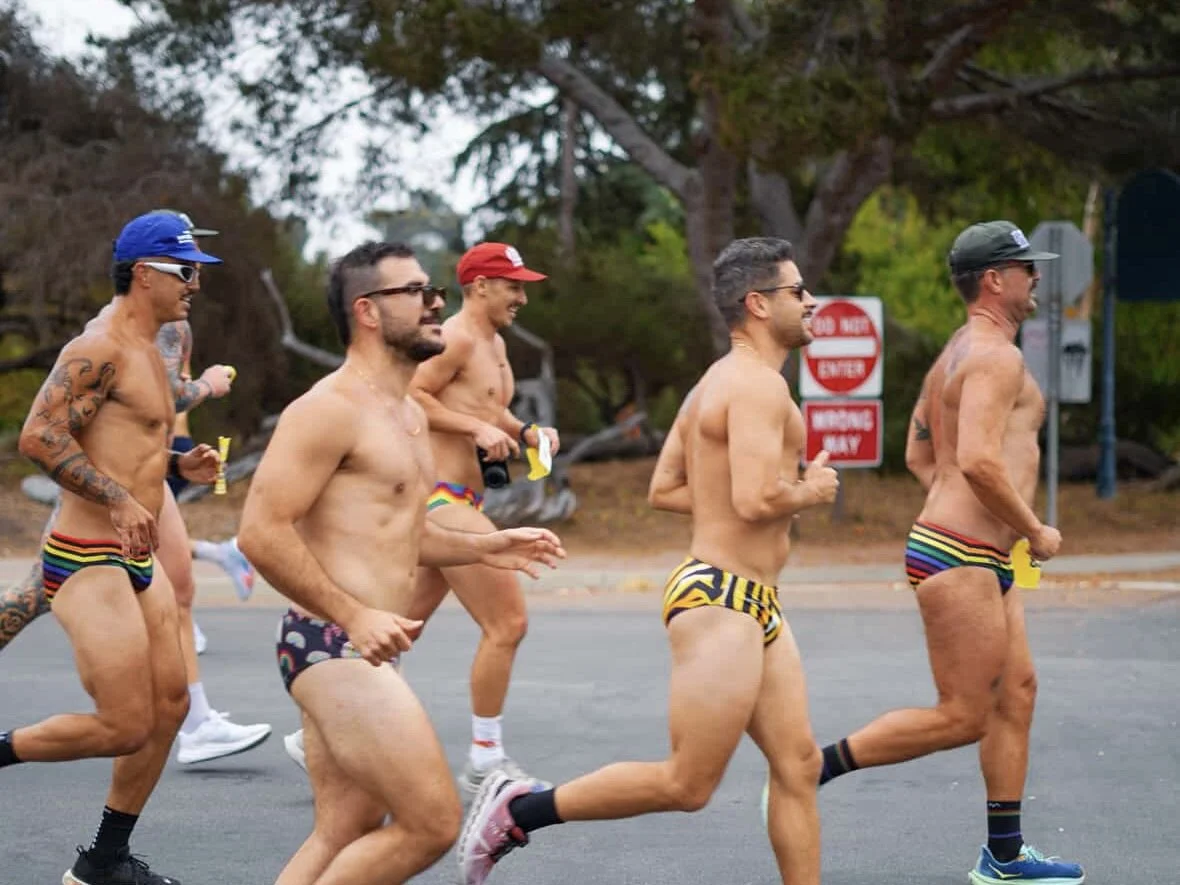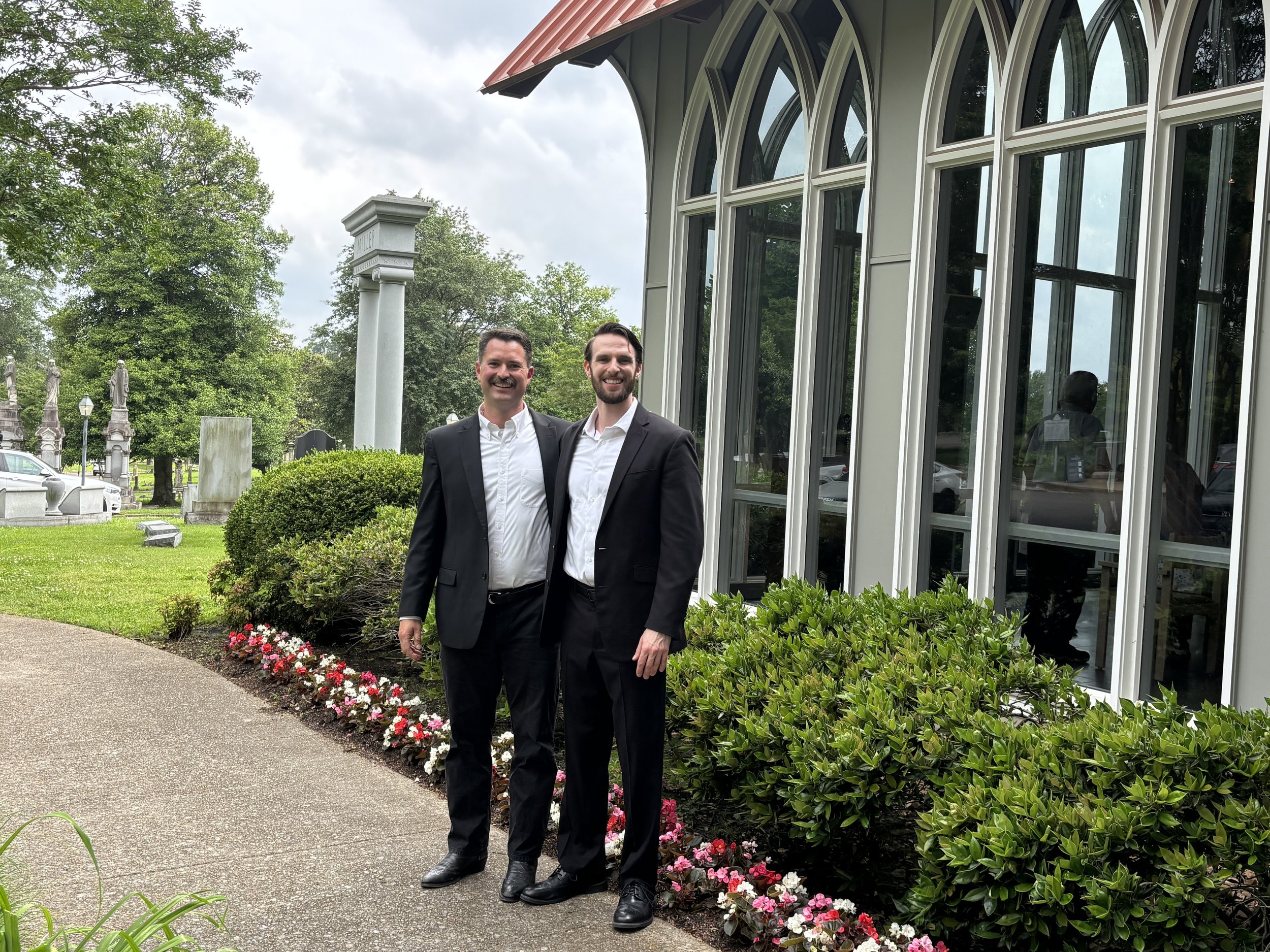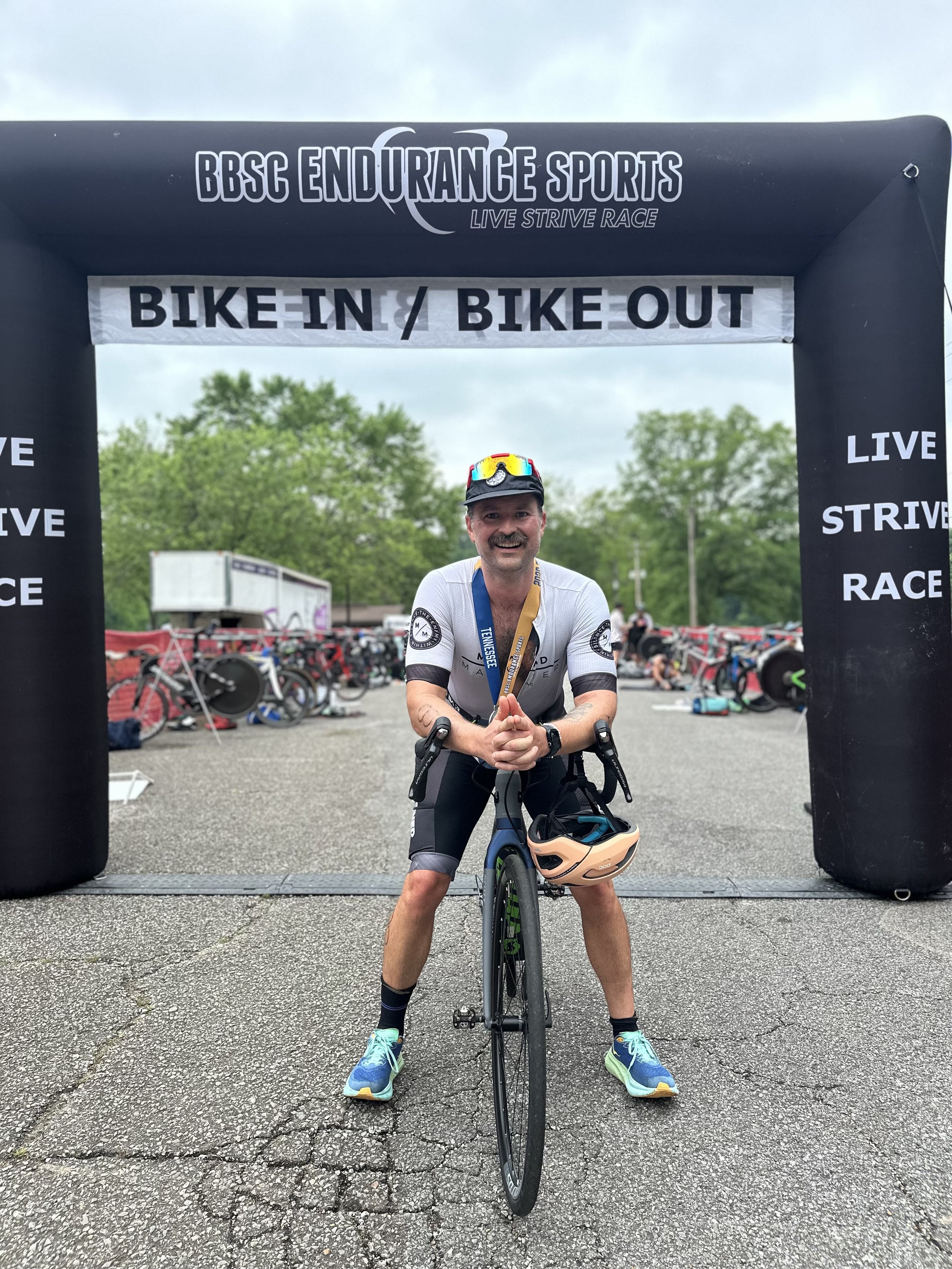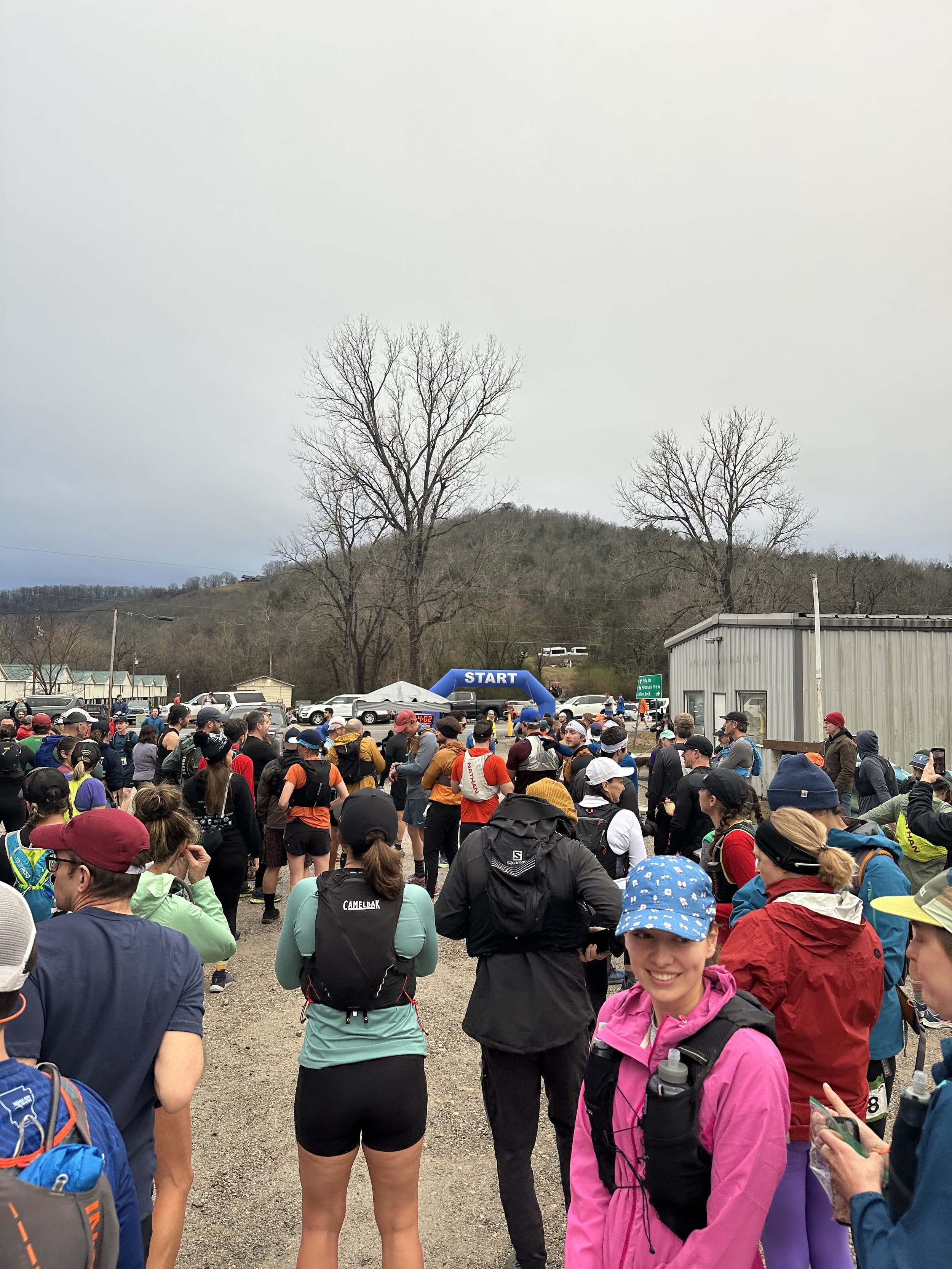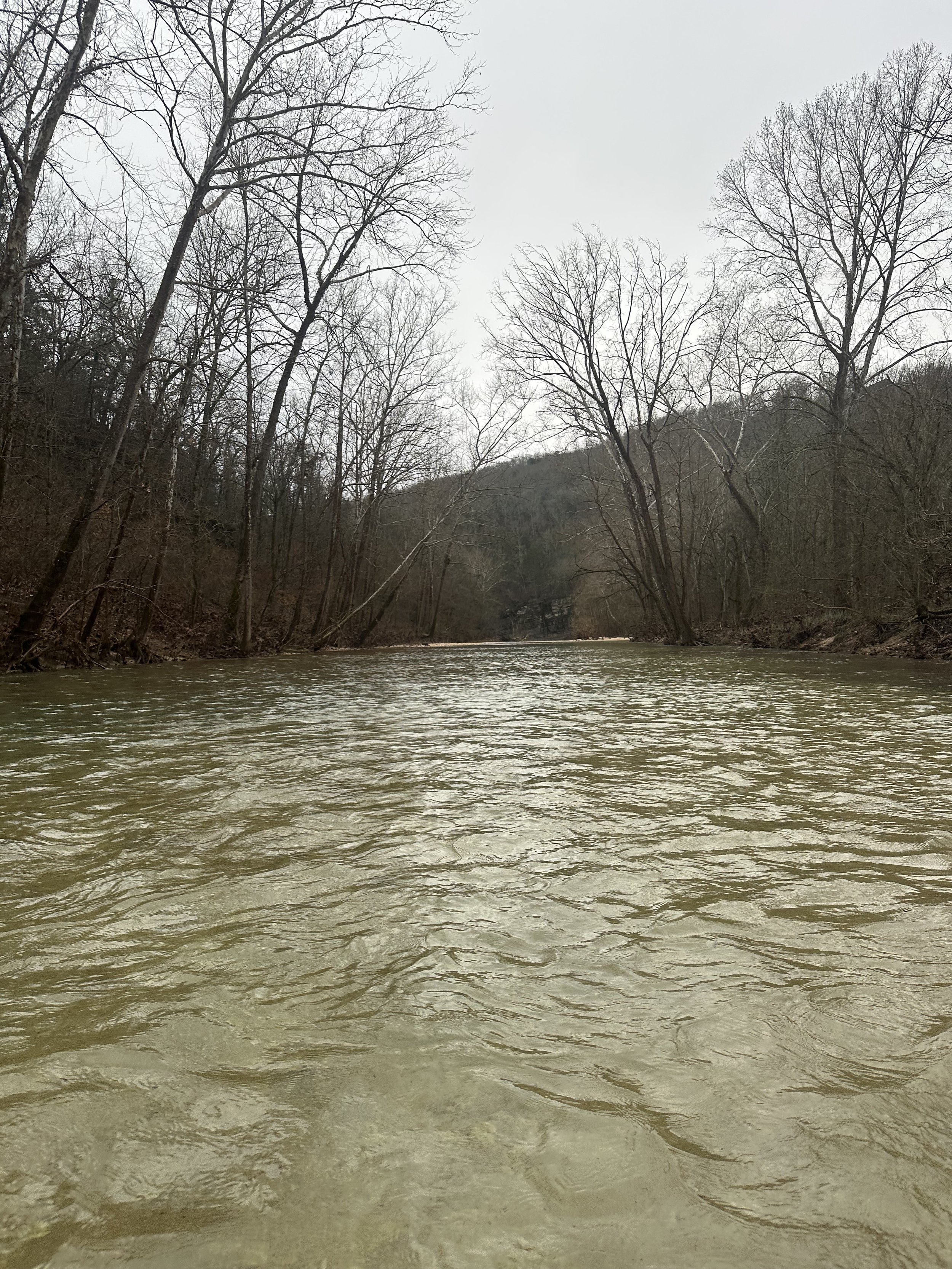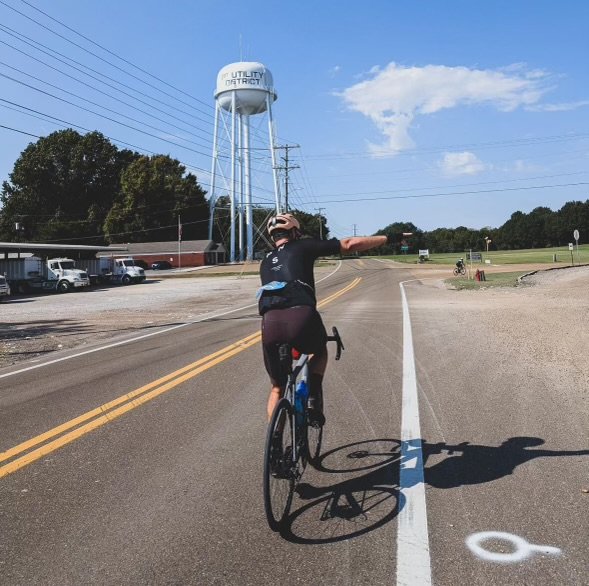It’s not every day that you get to run a 5k for a Pride festival. It’s not every day that you get to race for charity. It’s not every day that you get to be a swimwear model.
But on July 19th, I got to do all three things at once.
Let’s run it back.
Swimwear for the Bold
About seven or eight years ago, a friend tossed me the content for a boutique swimwear brand called NoodleBagz. I won’t lie: handsome lads in colorful swim briefs immediately grabbed my attention. I ordered a pair and fell in love, so I filled the cart with a few more kits, clicked, and made the purchase.
When I bought my first Bagz, I was just beginning to accept my body, beer belly and all. I wasn’t sober back in 2018, nor was I competing in any races like I do now. However, I was beginning to discover that my body was good as it was, and wearing a swim brief to the pool was my way of telegraphing my nascent confidence. The brand also gave me a vision for what my body could be, though it was not a vision that would come to life for several more years.
Connections and Hopes and Dreams
I’ve always known NoodleBagz to prioritize community and relationships. I followed the three lads who ran NoodleBagz, Ian, Kalei, and Shane, and we began an Instagram friendship. Really, it was me tagging the brand every chance I got; I wanted them to know that some bear in the south was enjoying their product.
In 2021, Ian reached out to me for advice. They wanted to create a line of Bagz for Pride, but they were three straight boys who didn’t want to encroach on territory uninvited. I told Ian that It didn’t matter how many rainbows you put on a Pride-themed kit; what was most important was the relationship the brand has with the local San Diego LGBTQ community.
They launched their first Pride line and sent me a pair as a gift for consulting with Ian. Then they took to the streets, literally. Ian, Kalei, and Shane - along with their friends - ran the San Diego Pride 5k in their Pride-themed Bagz and donated the proceeds to local LGBTQ charities: eye candy and athleticism for a good cause.
I watched these hooligans’ shenanigans on their Instagram stories, and I wanted to be a part of that crew. But in my mind, I knew that there was no way it could ever happen. I didn’t run back in 2021. I had never competed in any race. Furthermore, these lads were in San Diego, hundreds of miles away from my Memphis home. The idea of me running a race in NoodleBagz in San Diego was, to be quite honest, nothing more than a fantasy
Nonetheless, the lads encouraged me to stay in contact with them, so I did: sending memes, hyping up their events, and sharing their product on my stories. Summers came and went, another Pride 5k, another DM telling them, “I’m going to make it one year.”
After a few years of Turkey Trots, triathlons, half-marathons, and trail races, I knew I could finally run with these lads. All I had to do was verify that they were running, purchase my plane ticket, and head out West. I got my chance this year.
Run With Pride
I met Ian at bib pick-up the day before the race, and we had a quick chat over sparkling waters. We covered a lot of ground in 15 minutes, including race expectations, pacing, content ideas, and a brief history of the brand. Honestly, bless Ian for dealing with me - I was overstimulated from a busy morning and maybe possibly strongly fanboying over meeting the guy who runs the company I like a lot.
Nonetheless, Ian was gracious and kind and excited to run with me and the rest of the lads. So it was sorted: we had our bibs and our kits. He returned to work, and I went back to my hotel. It would be an early dinner and an early night for me, since I had to be at the race village by 6:45 AM.
But I did not sleep well.
Maybe it was the 3:30 PM espresso (whoops).
Maybe it was the buzz from attending a RuPaul’s Drag Race viewing party at a gay bar (Happy Pride).
Maybe it was the anxiety of hitting the pavement in only a swim brief (where do I put my wallet and phone?).
Maybe it was the thrill of the moment (oh my god, I’m actually doing this).
Whatever it was, I slept like shit. At 5 AM, I shuffled down to the hotel’s 24-hour diner and ate my breakfast sandwich and a coffee; might as well just get going.
I was the first to arrive in the racer village, followed by another long-time NoodleBagz customer named Ty. Then came Ian, Kalei, and their colleague Matt. Then came two more of Ian’s friends, Joey and Cheese (I am not making up these names). All of us boldly wearing NoodleBagz on a Saturday morning in the gayborhood of San Diego.
I’d like to pause this reflection and invite you to picture this absurd scene with me.
Ty was a D1 athlete and cheerleader.
The rest of these lads are former professional rugby players.
Matt competed for Team USA in the Paris 2024 Olympics.
And then there’s me, the musician with a dad bad, just here for a good time.
We were running this race to generate content in order to sell a product, so we weren’t racing for podium placements. We got footage before the race, and then we lined up at the start line. We took off at a tempo pace for the first mile, and then we slowed our pace for the majority of the course. Ian and Kalei dashed ahead of us to stage themselves for the shot. We would run past them, they would take pictures, we’d get our production notes for the next shot, and then Ian and Kalei would run ahead to the next photography spot. Wash, rinse, and repeat for 2 kilometers.
For the final 400 meters, we decided to put the hammer down and sprint the last leg of the race, and this is how I learned about the explosive nature of rugby athletes. We shot from a 9:20/mile to a 5:00/mile in a matter of seconds, and I’m proud to say that I mostly kept up with the Olympian. Did I nearly die? Sure, but it would’ve been worth it.
We crossed the finish line, medals looped around our necks. The lads did fireball shots; I ate a banana. And just like that, it was over.
Crash and Rise
Once my heart rate settled from the race, I hit event drop, and I felt deeply sad.
To be fair, I experience a crash following every race I run and, for that matter, every recital I perform. I grieve when I take the concert’s music out of my folder, because after all of that work, I will never perform that program again. When I hang the tattered race bib on my wall, I know that it marks the end of that training cycle, and that makes me feel sad.
However, this sadness felt different. In my excitement leading up to the race and the banter during our run, I never considered what would happen after we crossed the finish line. A litany of questions wracked my brain. Would the race photography come out well? Would I help or hinder this product drop? Did I let the brand down? Would Ian and Kalei want to be my friends? Was the race even worth the trouble? Even writing this, I can’t help but think that I put too much weight into this event and these people whom I had never met until this race. After all, it’s just a 5k…right?
But this event was more than a race. This race marked a culmination of a 7-year journey, from the first Bagz I bought to that very moment, and the many workouts and races I had done to gain the strength and confidence to run San Diego’s streets in nothing more than a swim brief.
The event also served as a reminder of the NoodleBagz community. I returned to my hotel to shower and check out, and then Ty and his husband Randy came over to have a post-race brunch. Later, Ian and Kalei came over to share a spritz by the hotel pool with me.
And as for whether or not I let the brand down (my anxiety be damned), Kalei told me that they wanted to name my racing kit after me. Jimmy. Two days after the race, my full name and my body became a face of this product drop.
I’ll be damned. I became a swimwear model. I’m honored.
Big Race Big Feelings
It’s been over two weeks since the race, and I’m still swimming in a glass case of emotions from the event. If I’m honest with myself, I think my feelings stem from more than my race; they are in response to what’s in front of me.
I turn 40 in two weeks. I’m concluding a season of my life, and I’m stepping into whatever this next chapter is. There’s a part of me that thinks, surely erroneously, that the San Diego Pride 5k with the NoodleBagz Lads will be the last ludicrous thing I’ll ever do in my life, and it’s time for me to grow up.
Whatever growing up means.
This event is another phrase in a song that will take a lifetime to compose. The San Diego Pride 5k was just like any other race I’ve done. I trained, I showed up, I showed out, I got my medal.
Yet this race was special for me because it reflected a seven-year journey of accepting my body for what it has always been - good and strong - and for meeting a few good men who were always in my corner through that process. I’ll keep running in the hopes of joining these lads for next year’s race.

